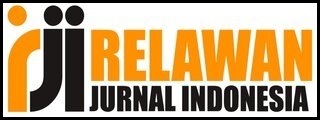Impact of Sharia Stock Prices: A Study on Inflation, Exchange Rate, BI Rate, and Money Supply
DOI:
https://doi.org/10.58777/rie.v2i1.274Keywords:
Inflation, Exchange Rate, BI Rate, the Money Supply on Sharia StocksAbstract
This study aims to examine the effect of inflation, exchange rate, BI Rate, and the amount of money in circulation on Islamic stocks in companies listed on the Jakarta Islamic Index (JII). This study uses a sample of changes in the inflation rate, changes in the exchange rate, changes in the BI rate, changes in the money supply, and Islamic stock prices. This study uses secondary data, namely reports of changes in index obtained from the official website of the Indonesian Stock Exchange and the website of the Central Statistics Agency. With the results obtained in this study, inflation has a significant negative effect on Sharia Stock Prices, Exchange Rates have a significant negative effect on Sharia Stock Prices, amount of money in circulation has a significant positive effect on the price of Sharia shares. Inflation, Exchange Rate, BI Rate, and Money Supply have a simultaneous effect on Sharia Stock Prices in Companies Listed in the Jakarta Islamic Index. Managerial implications, especially for investment managers and fund managers in the Islamic capital market. Knowing the influence of inflation, exchange rates, BI interest rates, and money supply on Islamic stock prices allows managers to make better and more strategic investment decisions.
References
Ahmad, H.T. (2018). Pengaruh Inflasi, BI Rate, dan Nilai Tukar Terhadap Return Saham (Studi Pada Perusahaan Subsektor Makanan & Minuman Yang Terdaftar di Bursa Efek Indonesia Periode 2013-2016). JurnalAdministrasi Bisnis, 2, 2.
Ahmad, Zamri. (2021). The Role of Macroeconomic Variables on Stock Market Index in China and India. International Journal of Economics and Finance. Universitas Sains Malaysia. http://dx.doi.org/10.5539/ijef.v3n6p233
Angga, M., & Latief, A. (2020), Pengaruh Nilai Tukar Rupiah dan BI Rate Terhadap Indeks Saham Syariah Indonesia (ISSI), Penelitian Mahasiswa Borneo, 1(3). 2106-2117.
Ardhansyah, P. (2019). Pengaruh Bi Rate Terhadap Indeks Harga Saham Jakarta Islamic Index (JII) Yang Terdaftar di Bursa Efek Indonesia. 2(2).08 – 16. https://doi.org/10.30743/best.v2i2.1813
Astuti, R., Lapian, J., Rate, P. Van, Manajemen, J., Bisnis, E., & Ratulangi, U. S. (2017). Pengaruh Faktor Makro Ekonomi Terhadap Indeks Harga Saham Gabungan (IHSG) Di Bursa Efek Indonesia (BEI) Periode 2006-2015. Jurnal Berkala Ilmiah Efisiensi, 16(2). 399-406. https://doi.org/10.31941/jebi.v24i1.1364
Deliarnov. ((2006).). Ekonomi Politik. Jakarta: Erlangga.
Dwi, P. d. (2023). Pengaruh inflasi dan pertumbuhan ekonomi terhadap Jakarta Islamic Index (JII) pada periode 2012-2019: Bandung.
Dwijayanti, Dhira Yogaswari. (2017). The Effect of Macroeconomic Variables on Stock Price Volatility Evidence from Jakarta Composite Index, Agriculture, and Basic Industry Sector. Bandung Institute of Technology, Indonesia. EDR. 2012. V46. 18.
Fujiono, & Nugroho, RH (2023). Pengaruh Tingkat Inflasi, Nilai Tukar Rupiah, Jumlah Uang Beredar dan Produk Domestik Bruto terhadap Indeks Harga Saham Gabungan di Bursa Efek Indonesia. Al-Kharaj: Jurnal Ekonomi, Keuangan & Bisnis Syariah, 5(2), 745–761. https://doi.org/10.47467/alkharaj.v5i2.1311
Langi, Dkk. (2019), Pengaruh Kurs, Inflasi, Suku Bunga SBI, Jumlah Uang Beredar Dan Harga Minyak Mentah Terhadap Jakarta Islamic Index (JII) Di Bursa Efek Indonesia Periode 2015-2020
Mustafa, K. K. (2019). Pengaruh Tingkat Inflasi dan Nilai Tukar (kurs) Rupiah Terhadap Indeks Saham Syariah Indonesia (ISSI.). Jurnal Tabbaru Islamic Bank and Finance. 4. https://doi.org/10.37366/akubis.v5i01.102
Nur Pita Sari, A. L. (2020). Pengaruh Inflasi dan Jumlah Uang Beredar Terhadap Indeks SahamSyariah Indonesia (ISSI). 1(3). 2721-5727. https://doi.org/10.31538/iijse.v5i2.2144
Oktaviani, S. d. (2020). Pengaruh Inflasi dan Jumlah Uang Beredar Terhadap Indeks Saham Syariah Indonesia. https://doi.org/10.34001/jra.v7i1.453
Rachmawati, M., & Laila, N. (2020). Faktor Makro Ekonomi Yang Mempengaruhi Pergerakan Harga Saham Pada Indeks Saham Syariah Indonesia (ISSI) di Bursa Efek Indonesia (BEI). Jurnal Ekonomi Teori Syariah Dan Terapan, 2(11), hal. 928-942. https://doi.org/10.20473/vol2iss201511pp928-942
Rikhetty, S. (2021). Analisis Pengaruh Inflasi dan Nilai Tukar Rupiah Terhadap Profitabilitas Bank Umum Milik Negara Yang Terdapat Di Bursa Efek Indonesia Tahun 2018-2020.
Saefuddin, A. D. (2019). Statistika Dasar. Jakarta: Grasindo.
Safitri, S. (2020). Pengaruh Jumlah Uang Beredar, Sertifikat Bank Indonesia Syariah, Inflasi dan Nilai Tukar Rupiah Terhadap Indeks Saham Syariah Indonesia. https://doi.org/10.25105/jipak.v10i1.4544
Sigit, S. N. (2018). Pengaruh Tingkat Suku Bunga, Kurs dan Inflasi Terhadap Jakarta Islamic Index (JII). Jurnal Ekonomi dan Bisnis. 3(1). https://doi.org/10.15548/jebi.v3i1.144
Siti, N. (2019). Analisis Faktor-Faktor yang Memengaruhi Harga Saham pada Perusahaan Bursa Efek Indonesia. https://doi.org/10.36596/ekobis.v10i2.878
Suci KE, Surabaya. (2017). Pengaruh Inflasi, Suku Bunga, Kurs dan Pertumbuhan PDB terhadap Indeks Harga Saham Gabungan. Jurnal Economica,8 (1): 53-64. https://doi.org/10.21831 economia.v8i1.801
Suciningtias, S.A., & Khoiroh, R. (2019). Analisis Dampak Variabel Makro Ekonomi Terhadap Indeks Saham Syariah Indonesia (ISSI). Jurnal Sekuritas: Saham, Ekonomi, Keuangan dan Investasi. 1(2). 398–412. https://doi.org/10.25299/jtb.2021.vol4(2).8310
Suwarni, D. (2017). Pengaruh Kurs dan Inflasi terhadap Harga Saham Syariah pada Perusahaan yang Terdaftar di Jakarta Islamic Index (JII) Periode 2014-2016. https://doi.org/10.33087/jmas.v7i2.559
Tagne, Joseph Talla. (2018). Impact of Macroeconomic Variable on the Stock Market Prices of the Stockholm Stock Exchange (OMXS30). Master's Thesis in International Financial Analysis. Jongkoping University. https://doi.org/10.4236/jfrm.2017.63022
Ulandari, Susi. (2017). Pengaruh Inflasi dan Nilai Tukar Rupiah terhadap Harga Saham di Sektor Industri Barang Konsumsi pada Indeks Saham Syariah Indonesia (ISSI) Tahun 2012-2016. Skripsi. Palembang. Fakultas Ekonomi dan Bisnis Islam. Univesitas Islam Negeri Palembang. https://doi.org/10.19109/ifinance.v3i1.1478
Ulfi, K. N. (2021). Pengaruh Perubahan Komposisi Jakarta Islamic Index Terhadap Return Saham. Jurnal eL-QUDWAH. 1(5). 2. https://doi.org/10.24952/bay.v2i2.9688
Umi, S. (2017). Pengaruh Inflasi, Tingkat Suku Bunga, Kurs, Harga Minyak Dunia dan Harga Emas Dunia Terhadap IHSG dan JII di Bursa Efek Indonesia. 2(2). https://doi.org/10.32502/jab.v2i2.1180
Usnan. (2016). Pengaruh Nilai Tukar Rupiah terhadap Indeks Saham Syariah Indonesia (ISSI). Jurnal EKA CIDA. 52. https://doi.org/10.30596/aghniya.v3i1.5844
Wibowo, S. (2017). Implementasi Transaksi Jual Beli Saham Di Pasar Modal Dalam Perspektif Hukum Islam. . XIV, 84–100. https://doi.org/10.29040/jiei.v7i3.3614
Widyasa, V. I. A., & Worokinasih, S. (2018). The Influence of the Inflation Rate, Rupiah Exchange Rate, and Domestic Interest Rates on the Indonesian Sharia Stock Index (ISSI). Business Administration (JAB), 60(1). 119–128. https://doi.org/10.18326/aicieb.v1i0.12
Witjaksono, Andrian Agung. (2020). Analysis of the Influence of SBI Interest Rates, World Oil Prices, World Gold Prices, Rupiah Exchange Rates, Nikkei 225 Index, and Dow Jones Index on IHSG. Thesis. Semarang: Postgraduate Program, Master of Management Study Program, Diponegoro University. https://doi.org/10.35335/enrichment.v12i4.761
Yahya, Mohd. (2017). Macroeconomic Variables and Malaysia Islamic Stock Market: A Time Series Analysis. Journal of Business Studies Quarterly. https://doi.org/10.18502/kss.v3i13.4226
Downloads
Published
How to Cite
Issue
Section
Copyright (c) 2024 Sidiq Subagio; Sovi Ismawati Rahayu

This work is licensed under a CC Attribution-ShareAlike 4.0
 Views: 168
|
Views: 168
|
 Downloaded: 150
Downloaded: 150











